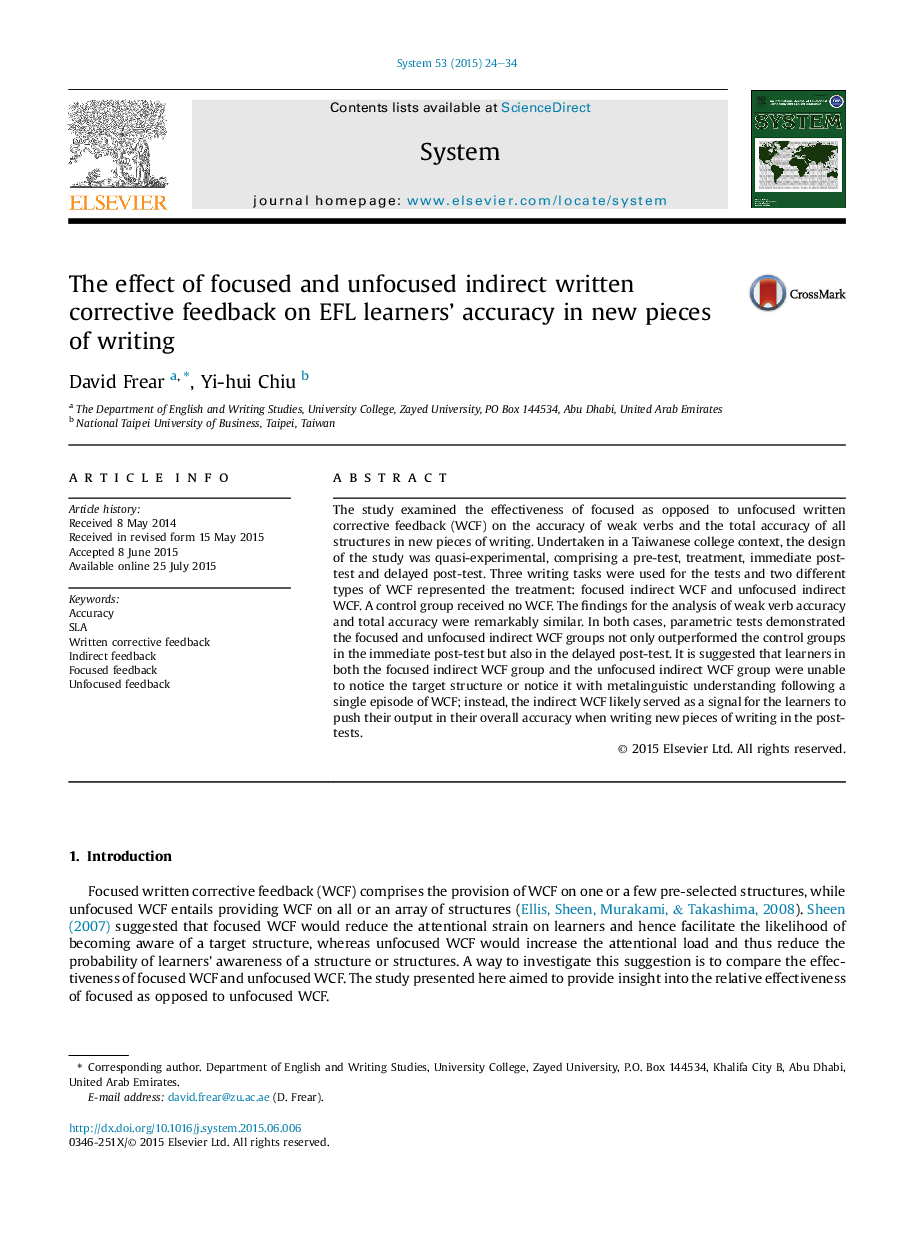| Article ID | Journal | Published Year | Pages | File Type |
|---|---|---|---|---|
| 373007 | System | 2015 | 11 Pages |
The study examined the effectiveness of focused as opposed to unfocused written corrective feedback (WCF) on the accuracy of weak verbs and the total accuracy of all structures in new pieces of writing. Undertaken in a Taiwanese college context, the design of the study was quasi-experimental, comprising a pre-test, treatment, immediate post-test and delayed post-test. Three writing tasks were used for the tests and two different types of WCF represented the treatment: focused indirect WCF and unfocused indirect WCF. A control group received no WCF. The findings for the analysis of weak verb accuracy and total accuracy were remarkably similar. In both cases, parametric tests demonstrated the focused and unfocused indirect WCF groups not only outperformed the control groups in the immediate post-test but also in the delayed post-test. It is suggested that learners in both the focused indirect WCF group and the unfocused indirect WCF group were unable to notice the target structure or notice it with metalinguistic understanding following a single episode of WCF; instead, the indirect WCF likely served as a signal for the learners to push their output in their overall accuracy when writing new pieces of writing in the post-tests.
